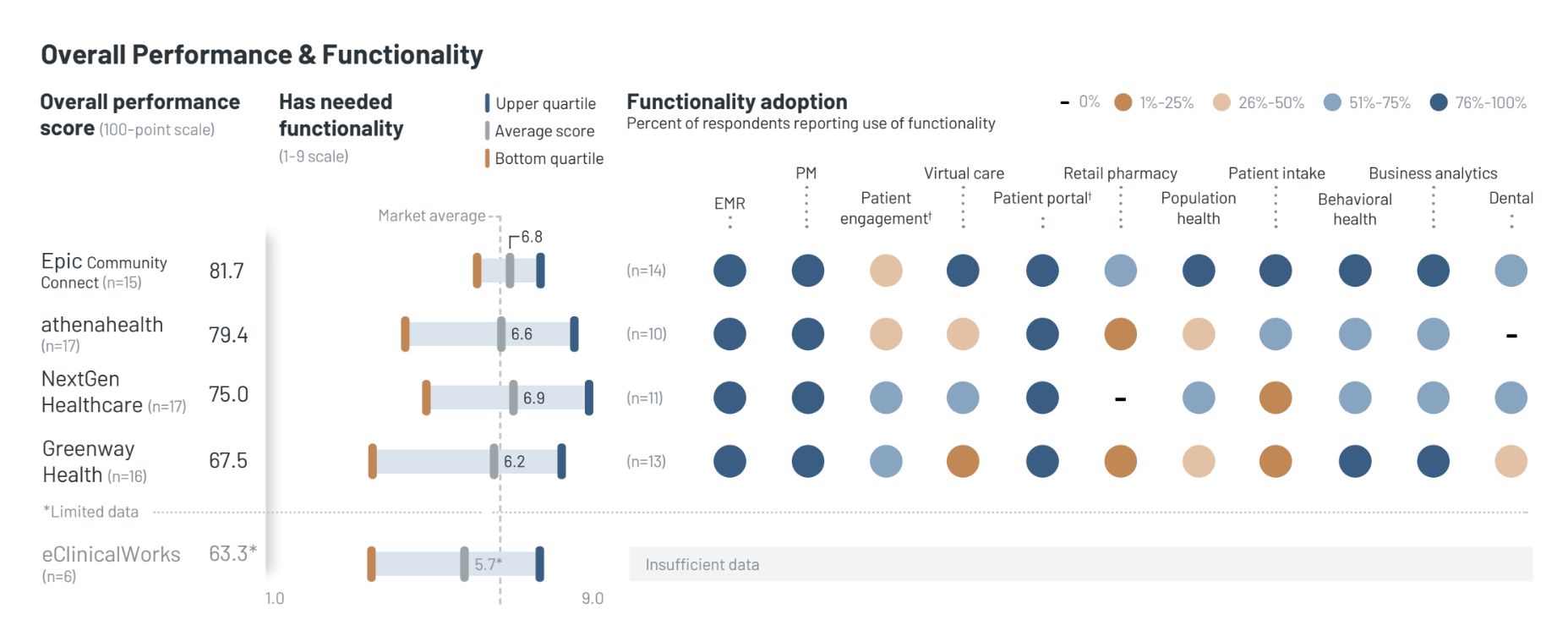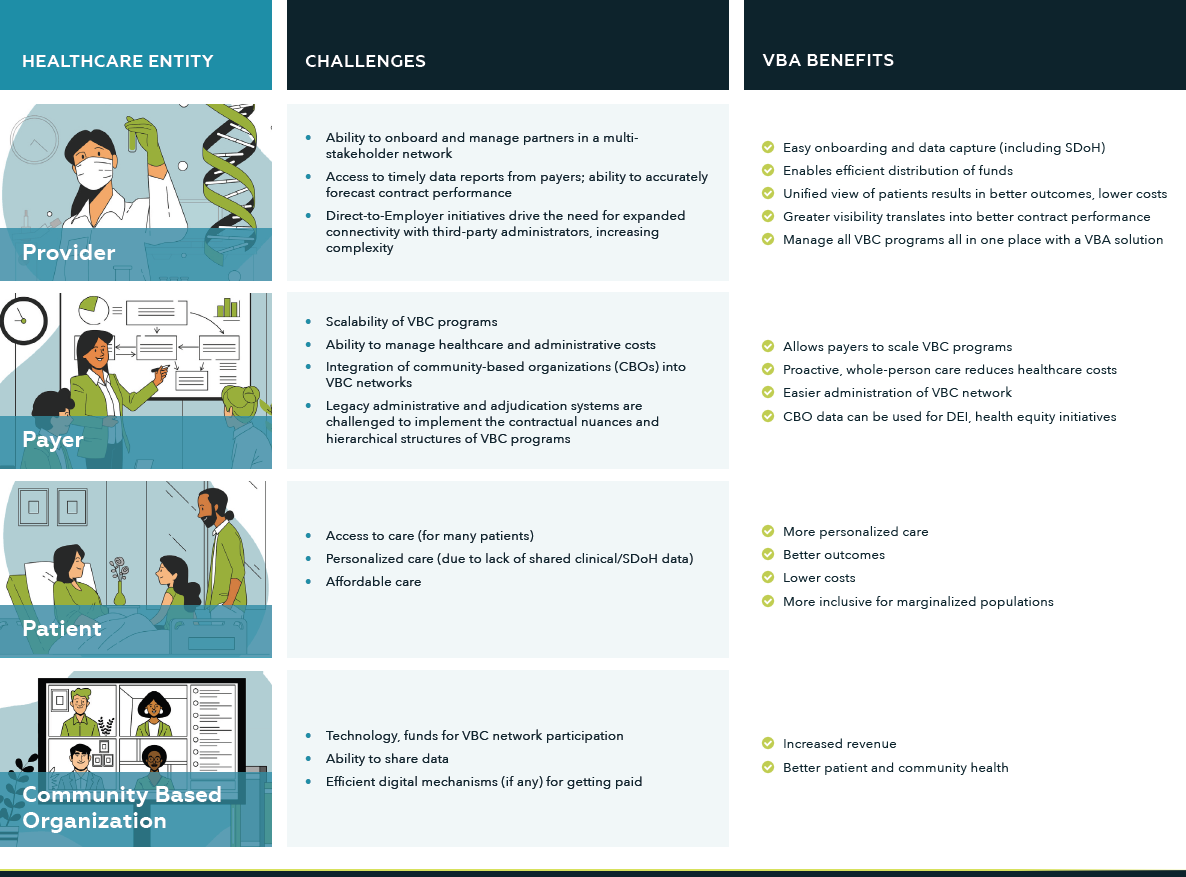The pandemic has accelerated the adoption of digital health technologies across the healthcare industry. Digital transformation is now the top priority for many healthcare leaders as they seek to build resilient systems. At its core, this means implementing emerging digital technologies to modify essential operations, processes, and services to ease staff workload and withstand future challenges.
The primary drivers of digital transformation are consumerism, cost, and experience/expectations,
Read More
Population Health Management (PHM)
Innovaccer Launches Self-Serve Conversational AI Assistant
What You Should Know:
- Innovaccer is unveiling six new breakthrough solutions that help providers accelerate their success with population health, consumerism, and value-based care.
- Leading the lineup is Sara, the first conversational AI for healthcare analytics. Sara is a conversational AI assistant that literally puts the full breadth and depth of enterprise healthcare analytics into the hands of healthcare managers, physicians, and care teams. Anyone can ask Sara complex questions
Read More
OM1 Launches AI-Powered Digital Phenotypes Platform, Creating “Fingerprints” for Patients
What You Should Know:
OM1, a real-world data, outcomes and technology company with a focus on chronic conditions, launches PhenOM™, its artificial intelligence-powered platform for personalized medicine.
Calibrated using OM1’s longitudinal health history datasets, PhenOM uses AI to identify unique digital phenotypes associated with conditions and outcomes and compare patients’ records to them to highlight risks and opportunities. PhenOM powers personalized healthcare insights at scale
Read More
Risk Adjustment 2023: Which Vendors Drive Value in a Shifting Market?
What You Should Know:
Strategies employed by payers, provider-sponsored health plans, and provider organizations are starting to become more proactive, and the need for solutions with prospective, predictive capabilities is rising. Additionally, amid rising healthcare costs and economic uncertainty, organizations are looking for solutions that deliver more for less.A new KLAS report examines risk adjustment vendors’ abilities to drive outcomes and value, their prospective capabilities,
Read More
KLAS: Epic Leads in Functionality Adoption for FQHCs
What You Should Know:
Federally qualified health centers (FQHCs) hold a significant and distinct place in US healthcare by providing low-cost, government-subsidized care to undererved populations. Due to FQHCs’ integrated care model and government ties, it is harder for these organizations to find comprehensive EMR and PM solutions that meet all care setting needs and are also reasonably priced.A new report by KLAS is the first look at HIT vendors who deliver needed functionality and
Read More
The Future of Digital Transformation in Hospitals
Hospitals are increasingly motivated to drive digital transformation in order to improve patient outcomes, reduce costs, meet regulatory requirements and stay competitive. Additionally, digital transformation can support medical research and drive innovation in healthcare, as well as generate new revenue streams. An increasingly important tool as hospitals undergo these transformations is federated learning, a technology that we will expand on later. Federated learning is a machine learning
Read More
How AI is Transforming Rare Disease Diagnosis
Collectively rare diseases are anything but rare – they impact 30 million people in the US and ten times that amount globally. And 1 in 3 children suffering from a rare disease will not survive beyond the age of five.
One of the biggest challenges facing clinicians is making a quick, accurate diagnosis – on average patients visit eight physicians and receive two to three misdiagnoses before being correctly diagnosed, a process that takes US patients around 7.6 years, and is often referred to
Read More
Value-Based Administration Enables All VBC Network Stakeholders to Benefit
Despite holding the promise of delivering superior patient outcomes while lowering healthcare costs, many providers remain reluctant to embrace value-based care (VBC) reimbursement models. Progress toward VBC adoption hasn’t achieved its potential yet, hovering around 60% of all payment models from 2018 to 2021, with the remaining 40% comprised of traditional fee for service (FFS).
Though some providers simply are hesitant to abandon the FFS model that has served them well, others are leery
Read More
Rethinking Behavioral Health Support in the ED: 3 Keys for Innovation
About one out of five Americans with serious illness struggled to access care during the pandemic, and rates were significantly higher among disadvantaged populations, a 2022 study found. Now, as mental health-related visits in emergency departments (EDs) continue to rise, healthcare professionals must consider: “How can we create better behavioral health supports for people in crisis?”
It's a question that has significant implications for quality of care as well as cost.
The High Cost of
Read More
Study Reveals EHR Data Can Identify Patients Who Are Frail
What You Should Know:
- AHRQ conducted a study to address the operational gap between CFIs and EFIs. This project focused on validating an established CFI using linked claims-EHR databases of multiple large health systems. The project provides a systematic approach that health systems can use to examine the quality of the EHR data and prepare it for the application of EFI measures.
- The findings demonstrated that structured EHR data can be used by healthcare providers to identify frail
Read More










